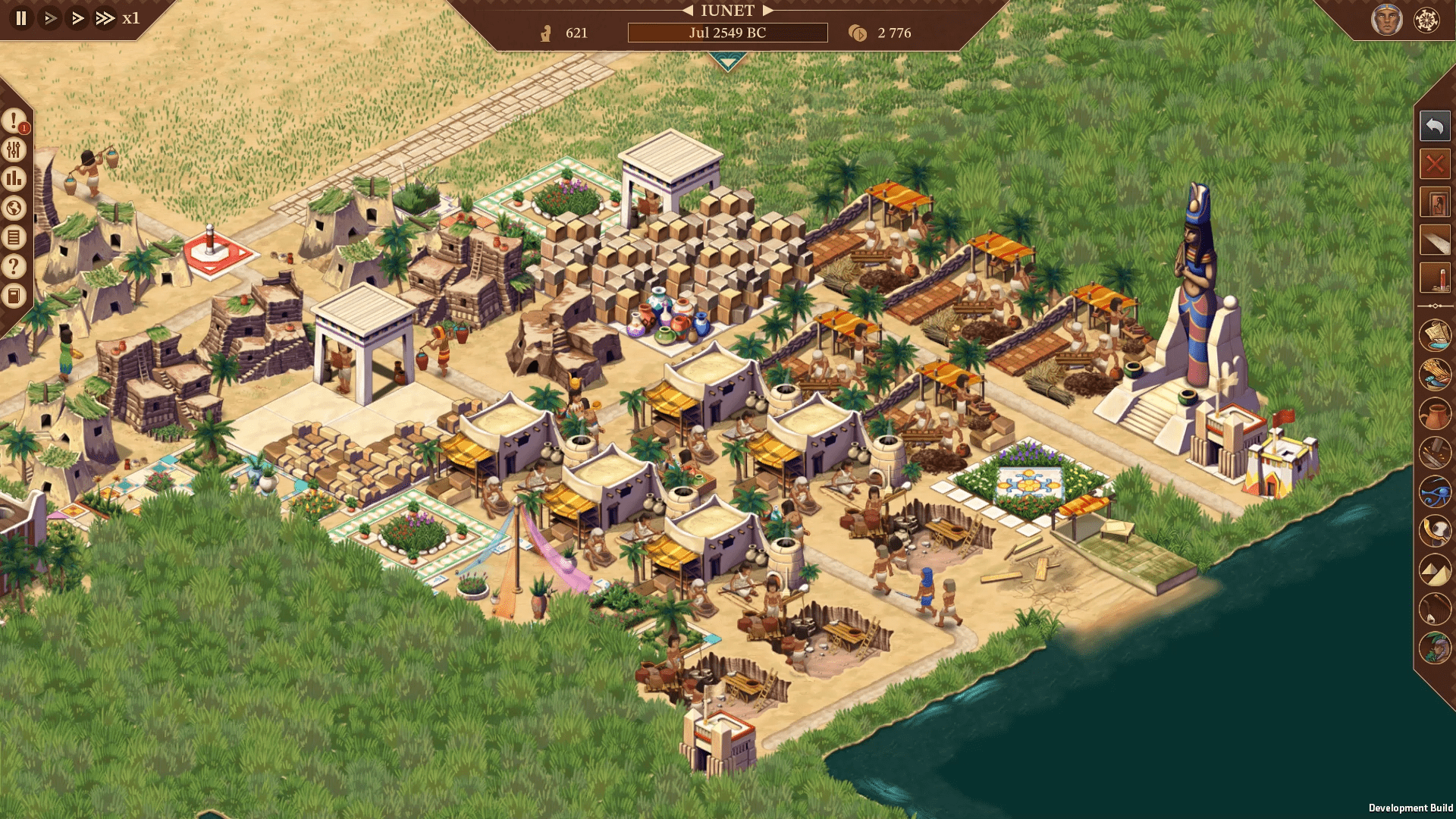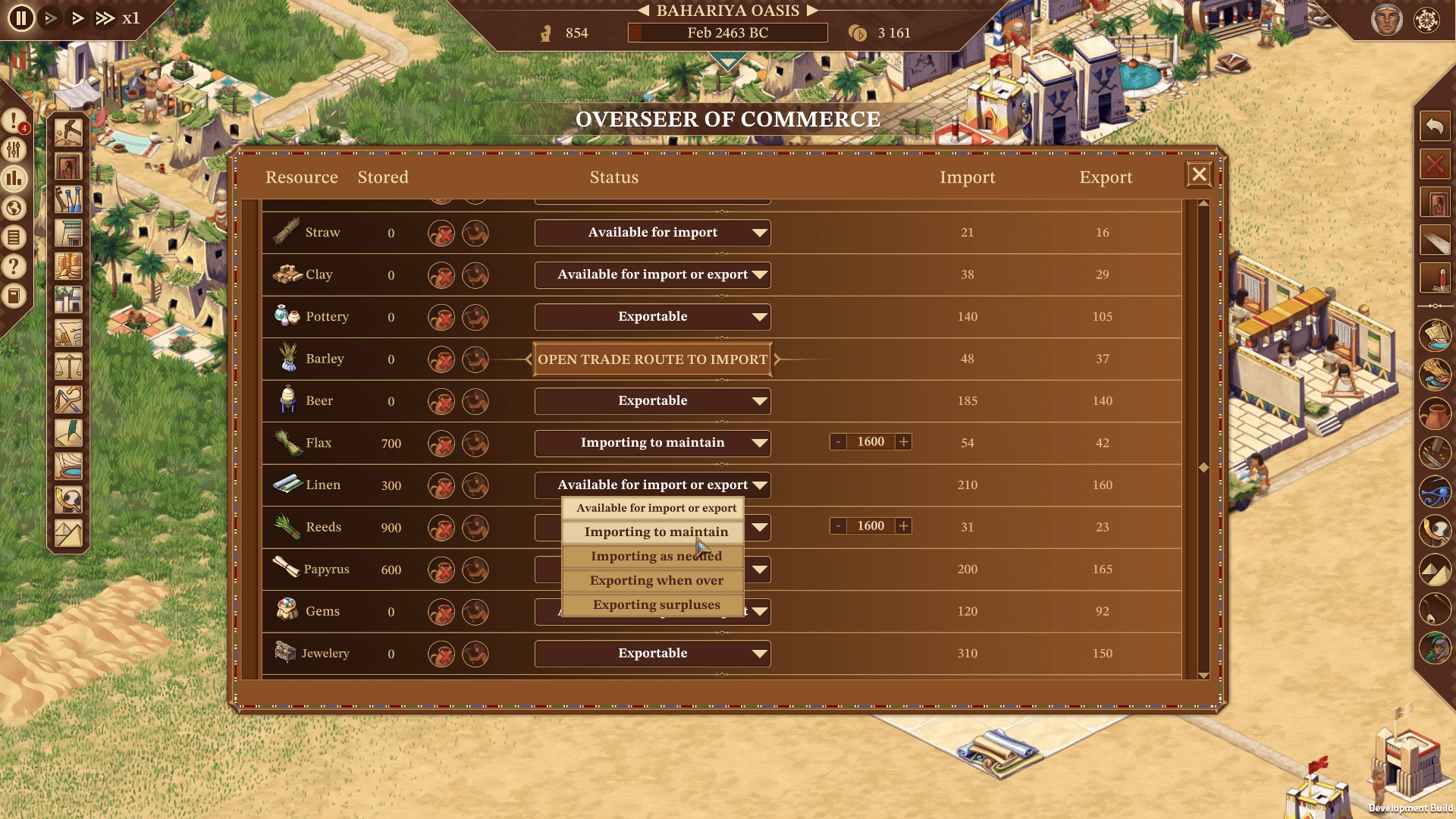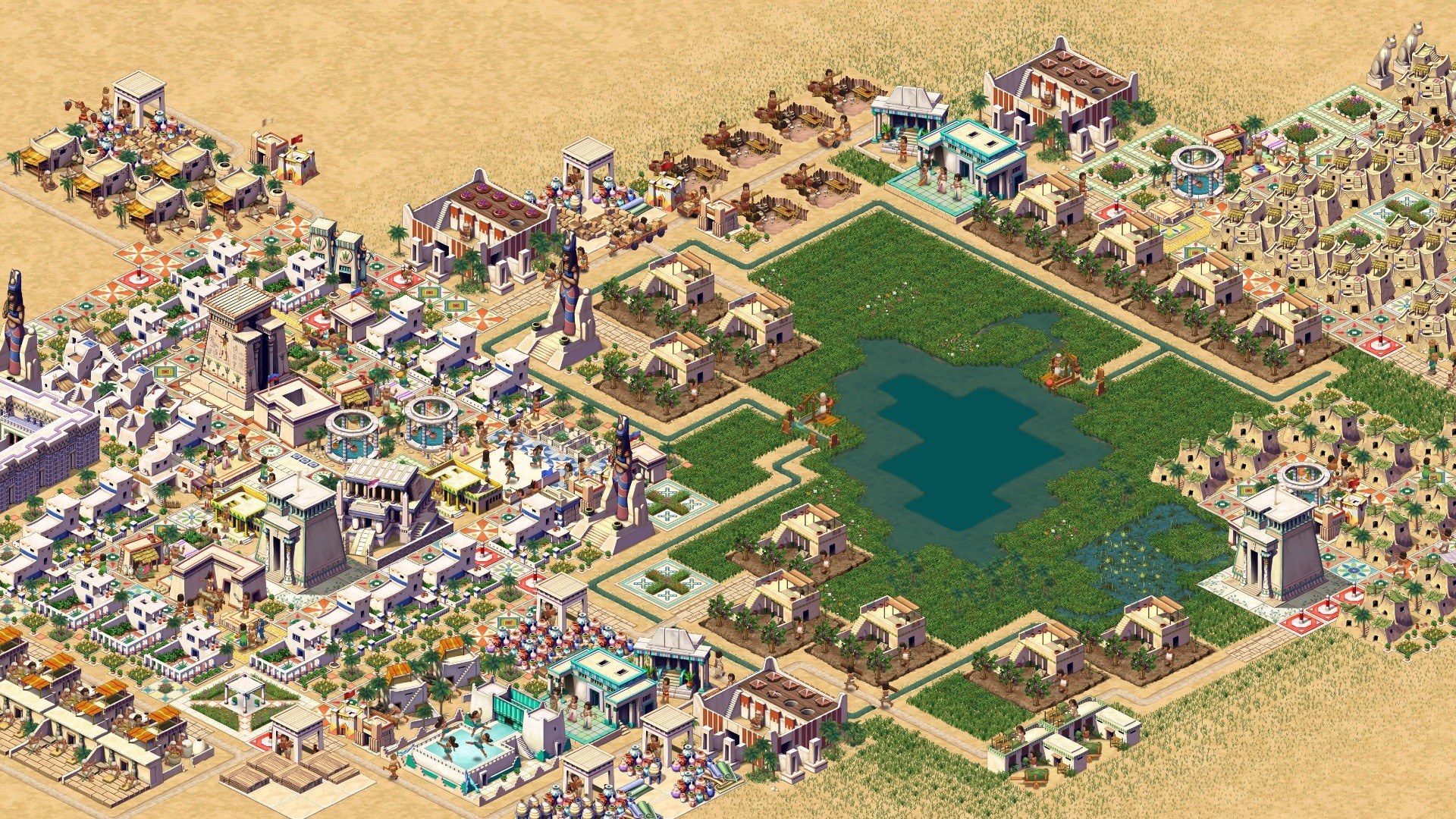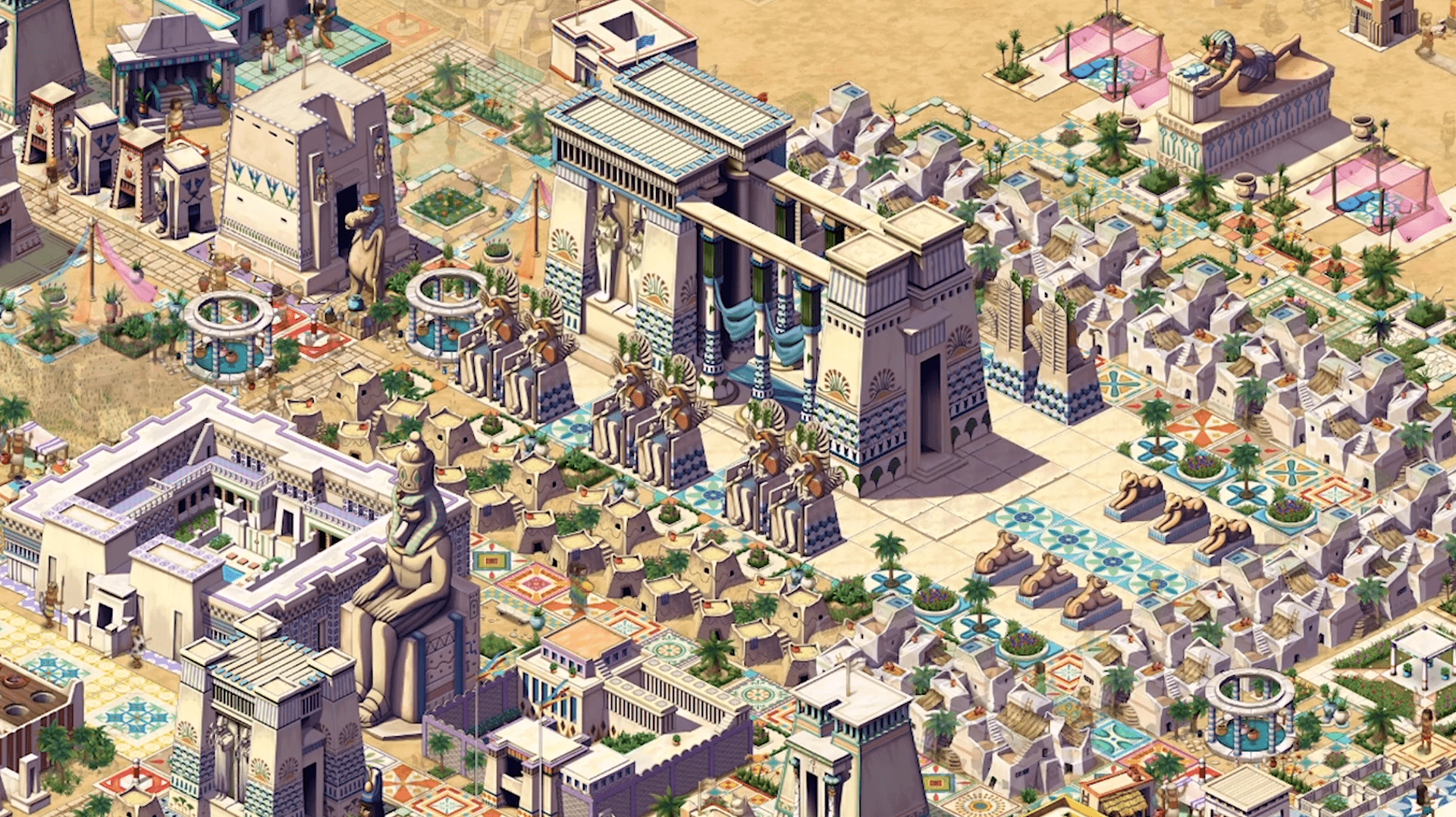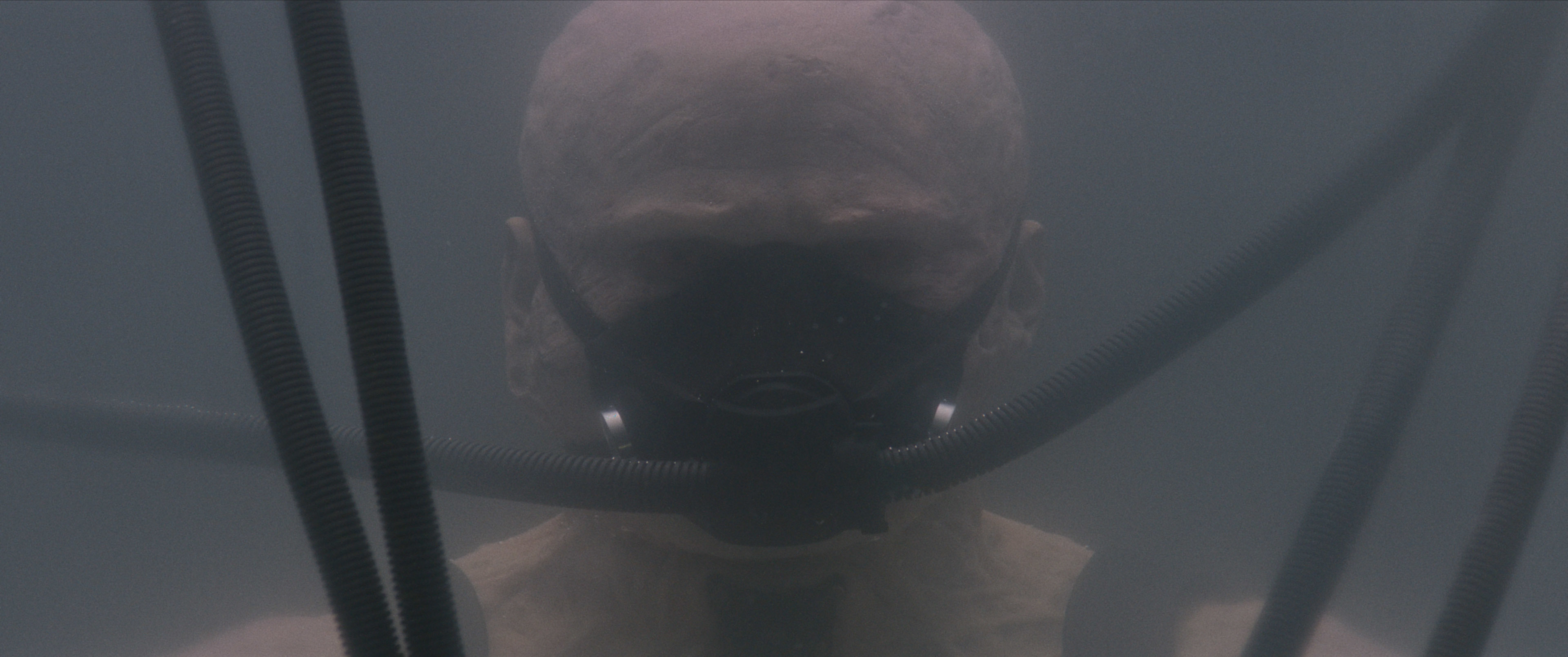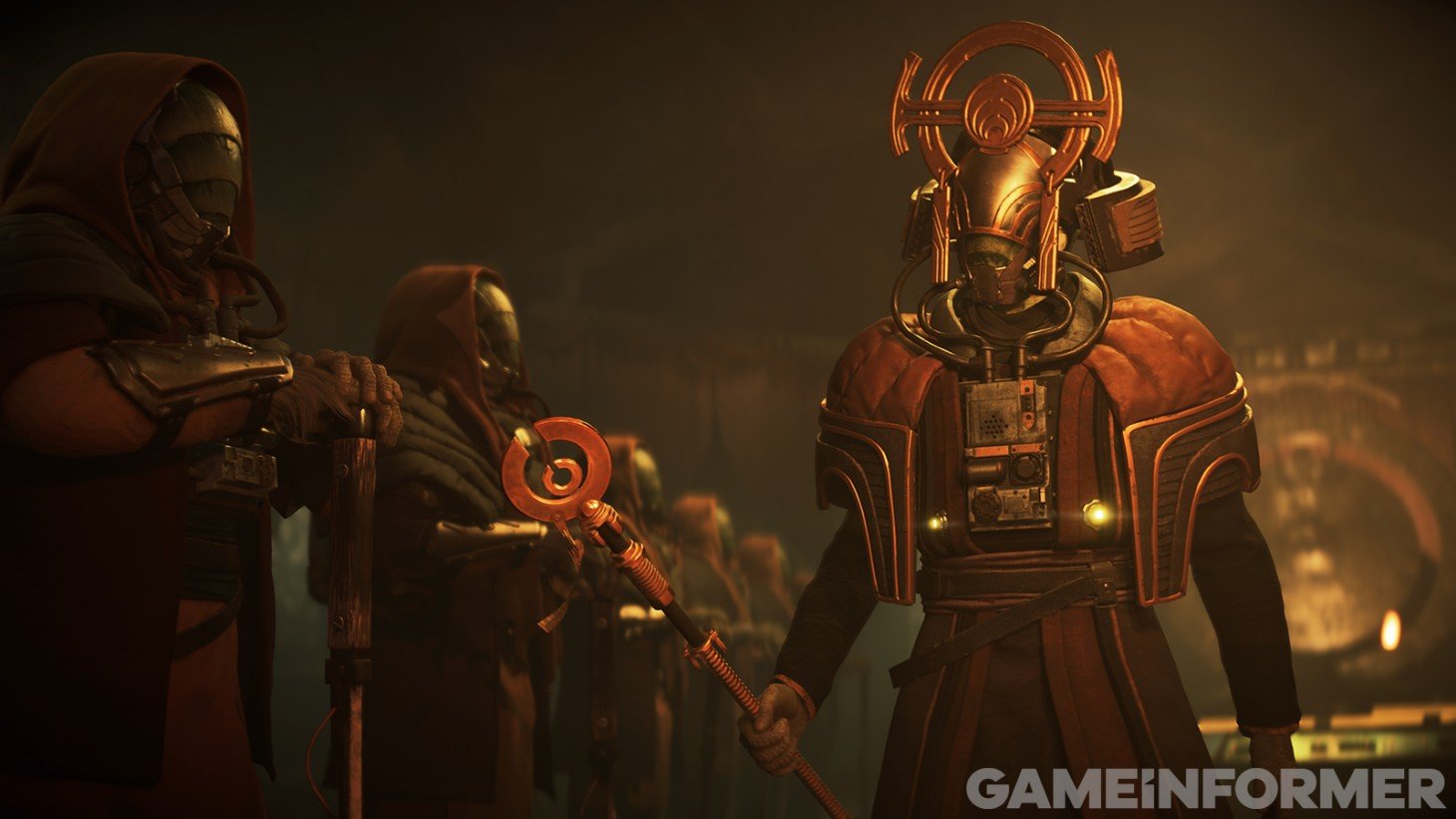‘Pharaoh: A New Era’ Review: The Classic City Builder Has Never Felt More Robust
Dotemu has landed another critical hit with the long-anticipated remake of the classic city builder Pharaoh and its expansion pack Cleopatra: Queen of the Nile. But is it an absolute triumph?
Developed by small French indie studio Triskell Interactive, Pharaoh: A New Era aims to dig up the legendary game for new generations of players as well as veteran fans who’ve spent an embarrassing amount of hours planning out and building up massive Egyptian cities.
At first, Triskell Interactive may seem like an odd pick to remake such a beloved city builder given their limited experience and the tepid reception for both of their previous games (the intriguing Lethis: Path of Progress and Lethis: Daring Discoveries), but they managed to pull this off and even bring some of their personal touch to the reworked classic.
The original Pharaoh (1999) built upon the success of Impressions Games’ Caesar series, and marked the first time the studio’s city builders explored a civilization which wasn’t the Roman Empire. Much like its predecessors, Pharaoh was played from a 2D isometric perspective, much like other classic builder/management games from that era, such as Zoo Tycoon or the hugely famous Sim City titles. And while many of those sims have endured the test of time, Pharaoh and its siblings’ atypical player interfaces and more management-focused systems are a bit harder to get into nowadays. On the other hand, the original game still looks gorgeous thanks to its vivid sprites and clear art direction.
Pharaoh: A New Era doesn’t reinvent any of the pre-existing systems, and instead applies much-needed QoL fixes and changes that make the original feel new — or at least more approachable — again. Some might argue this is more of an extensive remaster, but enough work has been done on the visual presentation and the somewhat convoluted original interface to safely call it a “conservative remake.”
Exactly as advertised, all the original Pharaoh and Cleopatra story missions are there, starting with glorified tutorials and leading into really complex management scenarios. On the surface, Pharaoh seems placid and shallow, but as new mechanics and systems are incorporated into the ever-growing cities, and external pressure increases, completing the final objectives in each scenario ends up becoming a proper challenge.
In many cases, it’ll be all about producing enough gold without your society crumbling, but other missions instead focus on religion, entertainment, or simply keeping citizens happy and in check. For example, the game underlines early on the importance of “road blocks” which limit where certain workers can go to. They may not seem too important at first, but if the cities grow big enough, workers walking all over the place become a problem, as you want to optimize their production/performance per minute and effectively guide their AI so they don’t get lost and utilize the most useful routes available.
Such matters are directly linked to the quality of your urban planning. This is a non-issue in the early missions, but as more buildings and different types of workers are unlocked, things need to start making sense or else growth and expansion will be impossible; unhappy citizens will leave the city, and the wheels of economy and production will stop moving. There’s tons of trial and error and patient problem-solving involved, and that’s part of the charm. As nice as the cities look without even trying, Pharaoh is more of a puzzle in real time which you can (thankfully) pause.
The overall experience playing A New Era wasn’t buggier than revisiting the original (something I did not long ago). That’s both good and bad. I’ve yet to experience newly-introduced oddities, so my time reviewing the game has been smooth sailing… except for those moments where old glitches and strange AI behavior made me reload a previous save (I highly recommend doing so regularly). The pure Pharaoh experience has been preserved at the cost of keeping some ugly bits around.
On the other hand, menus and the user interface as a whole mostly feel cleaner and more intuitive this time around, and that’s a big plus. I agree with the sentiment they could be streamlined a bit further though; accessing simple actions often requires a number of clicks which is far from optimal. In this regard, I hope Triskell pays attention to feedback from Pharaoh old-timers before moving on to their next project.
As an extra to this review, I’m happy to confirm the game runs really well on the Steam Deck despite the (understandable) lack of gamepad support, with minimal tinkering needed to get the mouse + keyboard experience right without those peripherals. While most of my review time with it was done on PC, I put in a solid hour sitting on the sofa and didn’t struggle with the Deck’s controls nor smaller screen.
Since I wasn’t bothered by the new, slightly cartoonier art direction and have found most of the changes and polish to the game’s moment-to-moment experience positive, Pharaoh: A New Era gets an easy recommend from me… as long as you’re into this kind of city builder or are looking to switch things up after draining modern hits like Cities: Skylines. Sometimes it’s just nice and informative to go back in time.
Pharaoh: A New Era is now available on PC (Steam and GOG).
Thanks to Dotemu and Tinsley PR for the review code.
Francisco J. Ruiz is that guy who has watched Jurassic Park a thousand times and loves Star Wars. His hunger for movies is only matched by his love for video games. He graduated in English Studies from the University of Malaga, in Spain. As he keeps writing about what he enjoys (and doesn’t) for websites all over, he’s continuing his studies.


